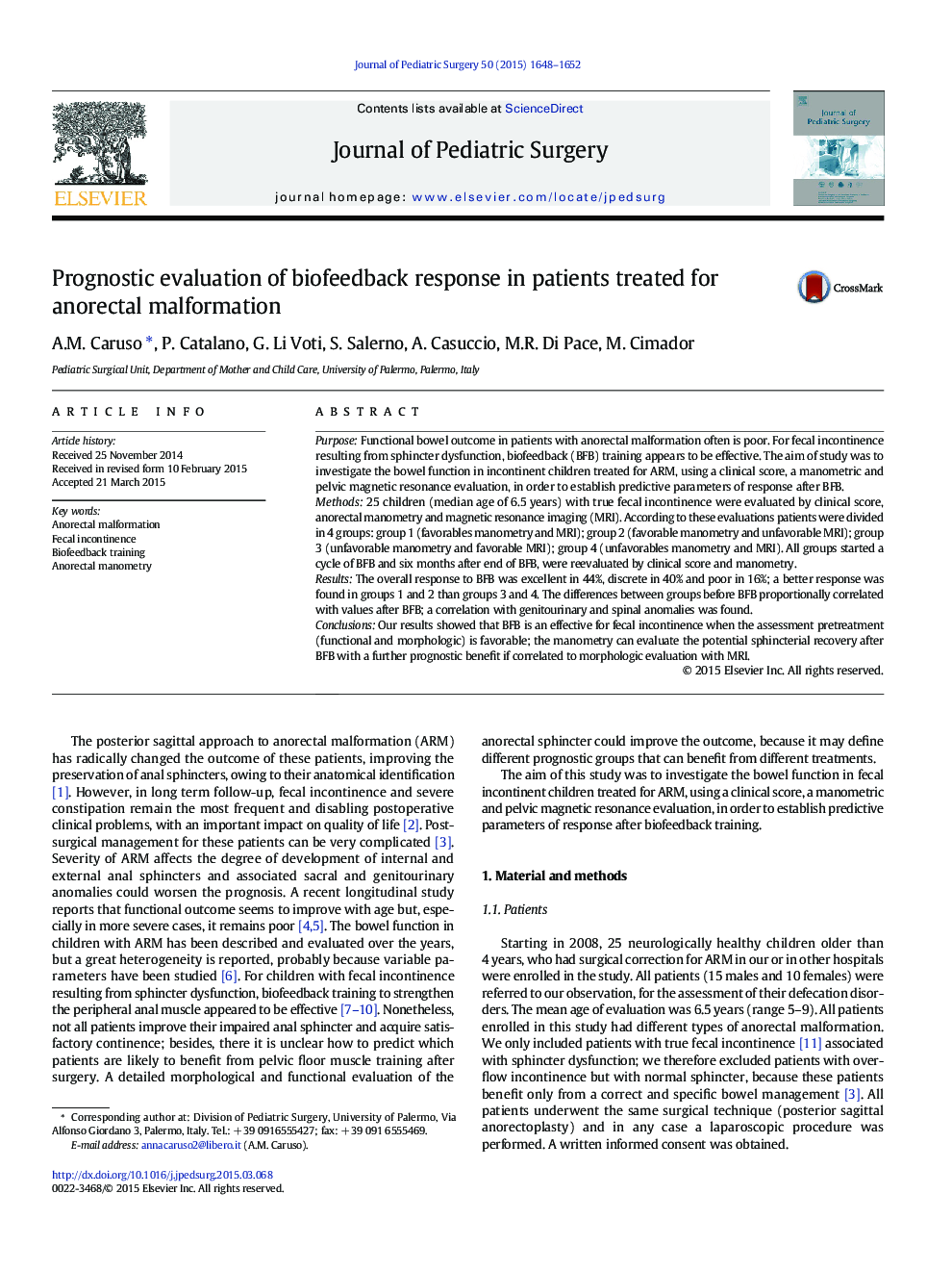| Article ID | Journal | Published Year | Pages | File Type |
|---|---|---|---|---|
| 4154992 | Journal of Pediatric Surgery | 2015 | 5 Pages |
PurposeFunctional bowel outcome in patients with anorectal malformation often is poor. For fecal incontinence resulting from sphincter dysfunction, biofeedback (BFB) training appears to be effective. The aim of study was to investigate the bowel function in incontinent children treated for ARM, using a clinical score, a manometric and pelvic magnetic resonance evaluation, in order to establish predictive parameters of response after BFB.Methods25 children (median age of 6.5 years) with true fecal incontinence were evaluated by clinical score, anorectal manometry and magnetic resonance imaging (MRI). According to these evaluations patients were divided in 4 groups: group 1 (favorables manometry and MRI); group 2 (favorable manometry and unfavorable MRI); group 3 (unfavorable manometry and favorable MRI); group 4 (unfavorables manometry and MRI). All groups started a cycle of BFB and six months after end of BFB, were reevaluated by clinical score and manometry.ResultsThe overall response to BFB was excellent in 44%, discrete in 40% and poor in 16%; a better response was found in groups 1 and 2 than groups 3 and 4. The differences between groups before BFB proportionally correlated with values after BFB; a correlation with genitourinary and spinal anomalies was found.ConclusionsOur results showed that BFB is an effective for fecal incontinence when the assessment pretreatment (functional and morphologic) is favorable; the manometry can evaluate the potential sphincterial recovery after BFB with a further prognostic benefit if correlated to morphologic evaluation with MRI.
